2020: Key dates, what’s happening at School of Social Work
As the 2020 spring semester has kicked off, the School of Social Work is highlighting key dates, new courses and great opportunities/events to take note of.
Academic dates, spring 2020
- Jan. 20: MLK Jr. Day holiday, no classes
- Jan. 24: Last day for degree candidates to submit graduation applications for May degrees
- Feb. 11: Summer semester advance registration begins
- March 8-15: Spring break
- March 24: Fall semester advance registration begins
- April 28: Last day of class
- April 29: Reading day; no classes
- April 30-May 7: Final exams
- May 8: School of Social Work commencement ceremony
Elective courses, spring 2020
Social Work 391/742: Topics: Core Concepts of Child Adolescent Trauma
By Lisa M. Brown, adjunct faculty
In recent years, the importance of trauma-informed care has gained attention in the social work field. SLWK 391/742 is an online course that provides students the opportunity to develop a deeper understanding of the principles of trauma-informed care, and to apply this knowledge to their practice with both children and adults.
The course utilizes the 12 Core Concepts for Understanding Traumatic Stress Responses In Children and Families, as developed by the National Child Traumatic Stress Network. These Core Concepts help us to understand the impact of trauma on the developing child. Traumatic experiences in infancy, childhood and adolescence can impact development in ways that carry into adulthood, making this course an important part of social work education whether students plan to work with children or adults.
In addition to developing an understanding of the impact of trauma, students will also learn how to assess a child’s functioning and response to trauma, as well as the ability of their family and other caregiving systems to provide safety and support. Based on this assessment, students will know where to focus treatment, and will learn of various interventions that they can utilize and recommend for the children and families they work with.
What makes this course especially interesting and unique is that it centers around five case studies of children ranging in age from 18 months to 15 years old. Course material is incorporated into discussion of the cases, allowing students to apply the material to case studies like those encountered in practice. The case studies cover topics such as interpersonal violence, child abuse and neglect, the experiences of immigrant and refugee families, and issues faced by LGBTQIA children and families.
The course is for B.S.W. and M.S.W. students and is available in an online format.
Social Work 391: Topics: LGBTQIA+ Issues and Social Welfare
By Maurice Gattis, Ph.D., associate professor and iCubed visiting scholar
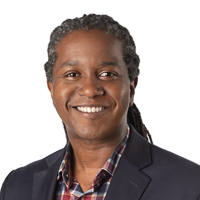
This is a new course being offered in Spring 2020. This course will provide the opportunity for students to engage in critical conversations about sexual and gender minorities without the assumption of previous knowledge about the population. Increasingly, employers and funders want employees and/or organizations that are familiar with issues that pertain to members of the LGBTQIA+ communities.
This course will highlight issues of importance from a historical perspective that covers that lifespan – informed by empirical research. Students will be engaged by assignments that address contemporary issues from micro and macro perspectives. I expect students to leave the course prepared to engage in issues of importance related to the community and with the tools to continue to advance their knowledge in the area.
The course is for B.S.W. students.
Social Work 391: Topics: Music and Social Justice
By Cameron D. Carter, assistant director of field education and associate professor in teaching
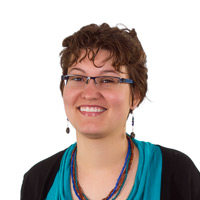
The class is about how music can be an intervention in a community context. We bring people together and we try to equalize the power differentials by being in a choir. We meet on Mondays as the RVA Street Singers choir, and on Wednesdays, we have seminars and we talk about what happened during the choir. So being in the classes is also being a part of the choir. And the choir is for those who are affected by homelessness in Richmond.
We want to create a space where people feel included and welcomed and empowered to find their voice. So that’s our community choir members and our students. The course is service learning, so it is about experiencing something in the community with a community partner, which is the choir, and then reflecting on it.
You don’t have to be a good singer to participate, and there are no auditions. Students can participate in whatever way they feel comfortable. They can be a percussionist if they would like. We have egg shakers, and you could just shake the egg the whole semester if you want. Most students warm to singing if that’s something they’re not trained in.
The director of the choir is a music therapist … so she brings a lot of pieces about how music can be used for therapeutic purposes and uses some techniques and teaches the students some of those techniques. But the choir itself is not considered a therapeutic group, it’s more of a community music therapy model.
I think one thing that I’ve heard repeatedly from students is, “I didn’t know how much the choir members would be invested in me and my life.” And so, when they come to choir, they make genuine personal human relationships with people, and people are asking them, “How is school going, how are you, how’s your family?” They’ll check in: “You weren’t here last week, I heard you were sick. How are you feeling.” I mean they’re really invested in the students and their well-being and developing those relationships. We do talk about appropriate boundaries from the student perspective. And that the space to encourage and nurture those relationships is in choir.
We are not a service provider, and that’s not the role for us to step in. We talk about that in the seminar class. We are not case managers in this situation, we are there to provide a community space for growth and development of each person’s individuality and helping them feel heard and humanized.
The course is available for B.S.W. students and is cross-listed to be available to other VCU undergraduate students.
Social Work 391: Topics: Social Work and Health Care
By Alexandra Burrows, adjunct faculty
The course, co-taught with adjunct faculty Erica Jackson, is intended to be an exploratory introduction to the intersection of clinical social work and one’s biological health. Over one-third of clinical social workers in the United States are employed in the health care sector. It would be foolish to assume that this industry’s growth is slowing. The consequences of which will have enormous impact on our field and the responsibilities we take on as social workers working in this community.
Erica and I wanted to teach this class because the reality is, is that at NO time in one’s life will you NOT have to interface with the healthcare system; we are unimmune (literally and metaphorically) to medical intervention (in varying degrees) and the often difficult conversations and topics surrounding it (changes in health care policy, capacity with regard to making one’s own decisions, insurance, substance exposure in infants, preventive medicine and social determinants of health, etc.).
Our class will begin discussing topics such as: prenatal health care, the inception of birth control and the sociopolitical implications of such and postpartum mental health. It will conclude with discussion around end of life care, hospice and the management of one’s death. We will link developmental life cycles to the healthcare concerns that arise during or as a result of the particular life stage. There will be three occasions during which health professionals from the community will come to class to speak and share their experiences working in this field.
It is our hope that our students will conclude their semester equipped not only to serve as better health advocates for their clients and the communities they serve, but perhaps more importantly, for themselves and their loved ones.
The course is for B.S.W. students.
Social Work 791-C91: Technology Applications in Social Work
By Stevara Clark, online M.S.W. program coordinator and assistant professor in teaching
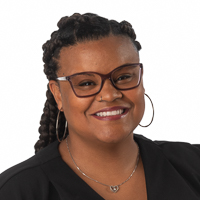
I’m excited for students to get exposure to the Standards for Technology in Social Work Practice. This goes beyond social media and focuses on ethical use of technology with client systems. I am looking forward to working with students in developing their digital literacy skills so that they can be ethical practitioners creating, evaluating and engaging with digital content.
I’m really excited to see how students apply what we are learning to a social justice issue facing their community. The creative products of this course include developing a podcast episode, using and evaluating mobile applications with communities and creating a resource infographic for their community. I’m excited for students to hear from guest lectures and social work practitioners across the country about how they are integrating technology in their social work practice.
The course is for M.S.W. students.
Social Work 791-901: International Social Work-Bridging the Local and Global
By Hyojin Im, associate professor
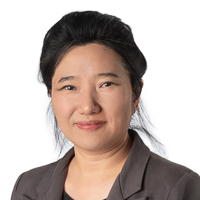
It is almost a cliché to say that we are living in a globalized world, where social problems of one country become another’s. Global awareness and intercultural competencies become increasingly urgent in social work practice to serve multicultural communities and to respond to various emerging social justice issues both locally and globally. Some social policies and practices that affect our global community are sometimes culturally sheltered, insensitive or ignorant, which may cause harm without intention (e.g. failure in humanitarian aid in Haiti). The U.S. often fail to adopt globally endorsed good practices due to Americentrism. For example, despite the highest child poverty rate among high-income countries and poor treatment of minors in criminal justice systems, the U.S. remains as the only country that did not ratify the UN Convention on the Rights of the Child (after the last two countries, Somalia and South Sudan, signed the Convention in 2015).
This course is designed to build students’ knowledge and skills for critically examining various approaches to intervening in global social issues, and experience in analyzing the efficacy of such interventions and policy to bridge the gaps in local and global practices. This course will help students develop competencies in international social work practice at micro, mezzo, and macro levels, while providing opportunities to apply social work theories, values, and concepts to various global social justice issues, both local and international. Students will also build cross-/multi-cultural competencies for working with international communities and linking local and international efforts to empower socially and economically disadvantaged communities and advance human rights and global, social, economic and environmental justice.
The course is for M.S.W. students.
Social Work 791-902: Racially Just Practice in Social Work
Course description
This three-credit course will extend the learning in SLWK 603 – Social Justice to prepare students to engage in the practice of racial justice work across micro, mezzo, and macro settings. This course will examine anti- blackness as being at the root of racial injustice and white supremacy, and explore the ways that it is manifested in common practice settings and social issues. In this course, students will:
• Position racial justice work in a social work context as actionable.
• Develop intra- and intergroup dialogue skills. Students will have an increased ability to critically engage others within and across racial groups and lines of power.
• Apply critical thinking and theory to an analysis of race and justice.
• Engage in institutional and policy analysis that incorporates an analysis of power.
• Connect the socio-historical and cultural context to the present day impact of race and racism on social issues.
• Engage in personal racial justice assessment and development, demonstrating the ability to authentically situate oneself in the work with a thorough understanding of positionality.
• Develop an action plan to address a social issue through a racial justice framework.
The course is for M.S.W. students
Events, spring 2020
Paths to Policy Seminar, Feb. 11
Considering a career in policy? Come to a panel discussion with professionals in the field to answer your questions. Panelists include VCU alumni with the following degrees:
- Master of Social Work, concentration in administration, planning and policy practice
- Master of Public Administration
There will be a Q&A session and opportunity to connect with panelists and representation from the School of Social Work and Wilder School after the event.
Social Work Day at the Legislature, Feb. 19
The day will begin at 7:30 a.m. at the YWCA of Richmond, with speakers on the power of social work advocacy; then topic groups for updates on key legislation that impacts the clients and communities with whom social workers come in contact every day. The group will go together to the General Assembly building for legislative visits and then return to the YWCA for lunch and debriefing; ending at 1 p.m.
Students can advocate with their field instructors for this event to count as field hours. Policy advocacy is an important social work skill that is on student learning plans.
Cultural Awareness Day, March 25
By Jamie Cage, assistant professor
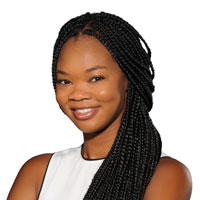
This is the 5th Cultural Awareness Day. Every year it seems to grow in size and scope. I only have one expectation; I expect it to be a great day! Every year we have amazing proposal submissions from our community partners, faculty and staff across the university and students. I’m excited to see what people submit and present this year.
Our keynote speaker will discuss the aesthetic trauma experienced by Black girls in educational spaces, and our afternoon panel will discuss the aesthetic trauma experienced by Black boys/men in educational and occupational spaces. I’m excited for everyone to hear about something we don’t speak enough about in Social Work, how Black people experience differencing levels of trauma because of their physical experience, and how this trauma may negatively impact how they show up in spaces.
Eurocentric views and standards of beauty, acceptability and professionalism have created an aesthetic expectation that devalues Black appearance and undermines Black culture, causing trauma to the everyday Black person. This is a very deep but important topic. I’m excited that the Association of Black Social Workers has the platform and support from the school to start this conversation.
In honor of these topics, I invite you all to review The CROWN Act. “The CROWN Act ensures protection against discrimination based on hairstyles by extending statutory protection to hair texture and protective styles in the Fair Employment and Housing Act (FEHA) and state Education Codes.”
Cultural Awareness Day details
2020 Federal Policy Fellows Program, March 25-26
By Basil Gooden, iCubed visiting scholar, sustainable food access
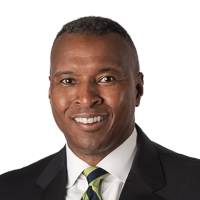
Assistant professor Nicole Corley and I are excited to build on the great work of associate professors Matt Bogenschutz and Alex Wagaman by expanding this legislative advocacy program into two full days in Washington, D.C.
- The Federal Policy Fellows program will teach Social Work students how to effectively engage in federal policy advocacy by working directly with lobbyists, nonprofit organizations, governmental officials and agencies and elected Congressional Representatives. This year’s program will focus on social workers advocating for sustainable food access and socially just food systems. Throughout this program, politicians and advocates (some listed below) will work directly with the Fellows before we travel to Washington to engage with our elected U.S. Representatives.
- Lamont Bagby, Member of Virginia House of Delegates, 74th District and Chair of the Virginia Legislative Black Caucus
- Jennifer McClellan, Member of the Virginia Senate, 9th District
- John Boyd, President, National Black Farmers Association
- Duron Chavis, Urban Agriculture Advocate and Lewis Ginter Outreach Manager
- Marc Cheatham, Director of Constituent Services, U.S. Senator Tim Kaine
Social Work Research Symposium, April 24
By Jaime Petrasek, director of research administration
It’s hard to believe, but we are well on our way through the first month of the new decade. In no time, it will be April, or as I like to call it, SSW Research Symposium Month! Dr. Karen Chartier and I are very much looking forward to seeing many of our students present at the symposium. We hope all of our faculty and alumni will join us to celebrate the wonderful and important work our students will showcase.
Last year, we added the IGNITE! piece, and it was a great success. We are hoping for more student IGNITE! sessions this year. Students will also have the opportunity to submit Research Posters to be printed and displayed, and we have a few slots open for traditional (brief) oral presentations.
Please mark your calendars!
SSW Research Symposium details
School of Social Work Commencement, May 8
By Humberto Fabelo, associate dean for academic and student affairs and associate professor
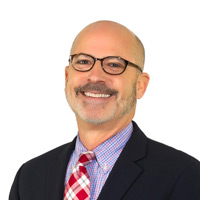
Our students come from near and far to earn a VCU social work degree, and regardless of the program in which they enroll, whether it is the B.S.W., M.S.W. or Ph.D., they all have one goal – to learn the knowledge, values, and skills to impact the lives of individuals, families, groups, communities and organizations in a positive way. Our graduates enter professional practice at all three of these levels with that one overarching goal in mind, and through their professional contributions, all help make society and communities better. Through all the hard work and effort, long hours of studying and training, and results, all students have one moment in mind – the moment when they walk across the stage and are recognized by the faculty upon graduation at the school’s signature and most important event all year: commencement!
Our present-day commencement exercises are rooted in ancient rituals and have a lot of symbolism … the cap and gown, the hood, the colors of the hood and even the markings on some gowns, such as those worn by doctoral graduates have meaning that remind all about the graduate’s school, discipline and degree level. The ritual of hooding master’s and doctoral graduates is a visible way to show the graduate has fulfilled all advanced degree requirements and is invested with the hood by the faculty to show this accomplishment; this symbolizes their entrance into the profession.
The VCU School of Social Work has been celebrating this ritual for more than 100 years, and much of it remains exactly the same as with the very first graduating class in the early 1900s. There is great pomp, music, processions of students and faculty, all behind school banners that designate the degree level. Commencement is a time that marks the end of the graduate’s formal education and the beginning of their professional journey, so there are opportunities to look back and see all that each has accomplished, as well as forward to imagine what lies ahead. For these reasons, we have student speakers who talk about what their journey has been like and a guest of honor, the commencement speaker, who shares encouraging words as graduates leave the university and enter the workforce. Speakers are selected on the basis of their own contributions to and support of social work initiatives and priorities. All commencement speakers, whether they are social workers or not, share our commitment to social work values and making society a better place for all.
Almost all graduates usually attend the commencement ceremony, which is held every May at the VCU Siegel Center for Fall, Spring and August graduates and an enthusiastic crowd of about 2,000 family, friends and loved ones. Commencement is an electrifying experience and a fitting one as graduates leave to begin doing what they came to VCU to learn to do. We hope that all Fall 2019, Spring 2020 and B.S.W. and M.S.W. August 2020 graduates and their supportive communities will join the thousands of previous VCU social work graduates who have gone through the same ceremony for over 100 years!
Categories Education, Faculty and staff, Program news, Research